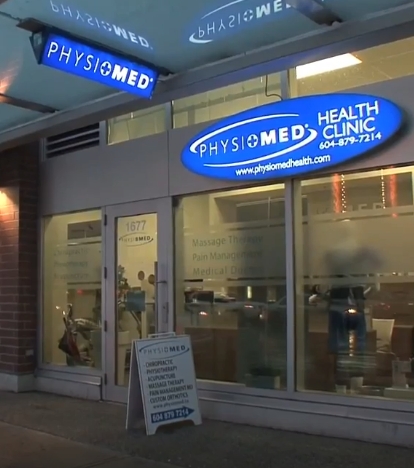Are You Living with Chronic Back Pain?
Does your back hurt all the time? Can’t seem to get comfortable or engage in your normal activities?
If so, be sure to give us a call and schedule an appointment with Physiomed Vancouver.
Our physiotherapists can help lessen your pain or alleviate it entirely.
Chronic back pain, defined
Most back pain is short term. It persists from a few days to a few weeks. Chronic back pain is pain that lasts for 12 weeks or more.
Chronic back pain is pain that persists for three months and longer. This type of pain can be due to a variety of reasons, including arthritis of the spine, aging, disc problems and myofascial pain syndrome.
About 20 percent of people who have back pain will have it develop into chronic back pain with persistent symptoms. Chronic back pain ranks number three on the scale for the most burdensome conditions for Americans.
What could be causing my chronic back pain?
Most chronic back pain causes are mechanical in nature. Some of the causes include:
- Intervertebral disc degeneration
- Radiculopathy
- Herniated discs
- Sprains and strains
- Traumatic injury
- Sciatica
Sprains and strains are caused by tears in the muscle, twisting or lifting improperly or overstretching. Disc degeneration occurs when the rubbery discs in the spine lose their integrity and no longer act as a cushion between discs. Herniated discs occur when the discs become compressed and bulge outward.
Radiculopathy is caused by injury, inflammation or compression of the spinal nerve root. It can occur with a herniated disc, too.
Sciatic is a type of radiculopathy due to compression of the sciatic nerve. The sciatic nerve is a large one and compression to it can cause a burning or shock-like pain that radiates to the leg and feet. It also may cause numbness and weakness in the leg.
Traumatic injuries can occur from falls, car accidents and sports. Damage to the ligaments, muscles and tendons can lead to chronic back pain as the result of a traumatic injury.
How will physiotherapy help my chronic back pain?
Physiotherapy is often recommended by physicians for people with chronic back pain. The goal of physiotherapy is to decrease back pain, increase function and provide education to avoid future recurrences. A physiotherapy program typically has two components: passive treatment and active treatment.
Passive treatments consist of ultrasound, ice and heat therapy, TENS units, electric shock, massage and stabilization techniques. Active treatments consist of stretching and targeted exercises.
Physiotherapists also give patients with chronic back pain a routine exercise program to do at home. Physiotherapy also helps those with chronic back pain avoid depending on pain meds and having surgery. Heat and cold therapy may be used to increase blood flow, reduce inflammation and lessen pain. Ultrasound is a common passive modality that physiotherapists utilize. Ultrasound uses sound waves for deep heating that penetrates the soft tissue.
According to the NBCI, “in chronic low back pain, the physiotherapy exercise approach remains a first-line treatment and should be routinely used. “
Stabilization exercises may also be included to retrain the deep muscles. Your physiotherapist will show you how to use the right spinal and abdominal muscles before beginning any exercises to stabilize the spine. Manipulation is another technique to alleviate chronic back pain. Short and rapid thrusting movements are done over a joint to reduce pain and increase mobility.
Not only does this method alleviate back pain, it enhances healing of the affected area. A transcutaneous electrical nerve stimulator (TENS) unit may be ordered by a physiotherapist. This unit helps override painful signals sent to the brain.
It can be used at home and on a long-term basis. Deep tissue massage is another common treatment for chronic back pain. This manual method increases oxygen and nutrients to the affected areas for healing and also helps reduce muscle spasms and stiffness.
If you’re suffering from chronic back pain, be sure to contact our office for a consult and an evaluation.
Ready to find relief?
Our physiotherapists will review your medical history, evaluate your function, determine your range of movement and develop a personalized treatment plan that will get you on the path to recovery.
Our goal is to improve your quality of life and help you perform your daily routine. Call Physiomed Vancouver today!



